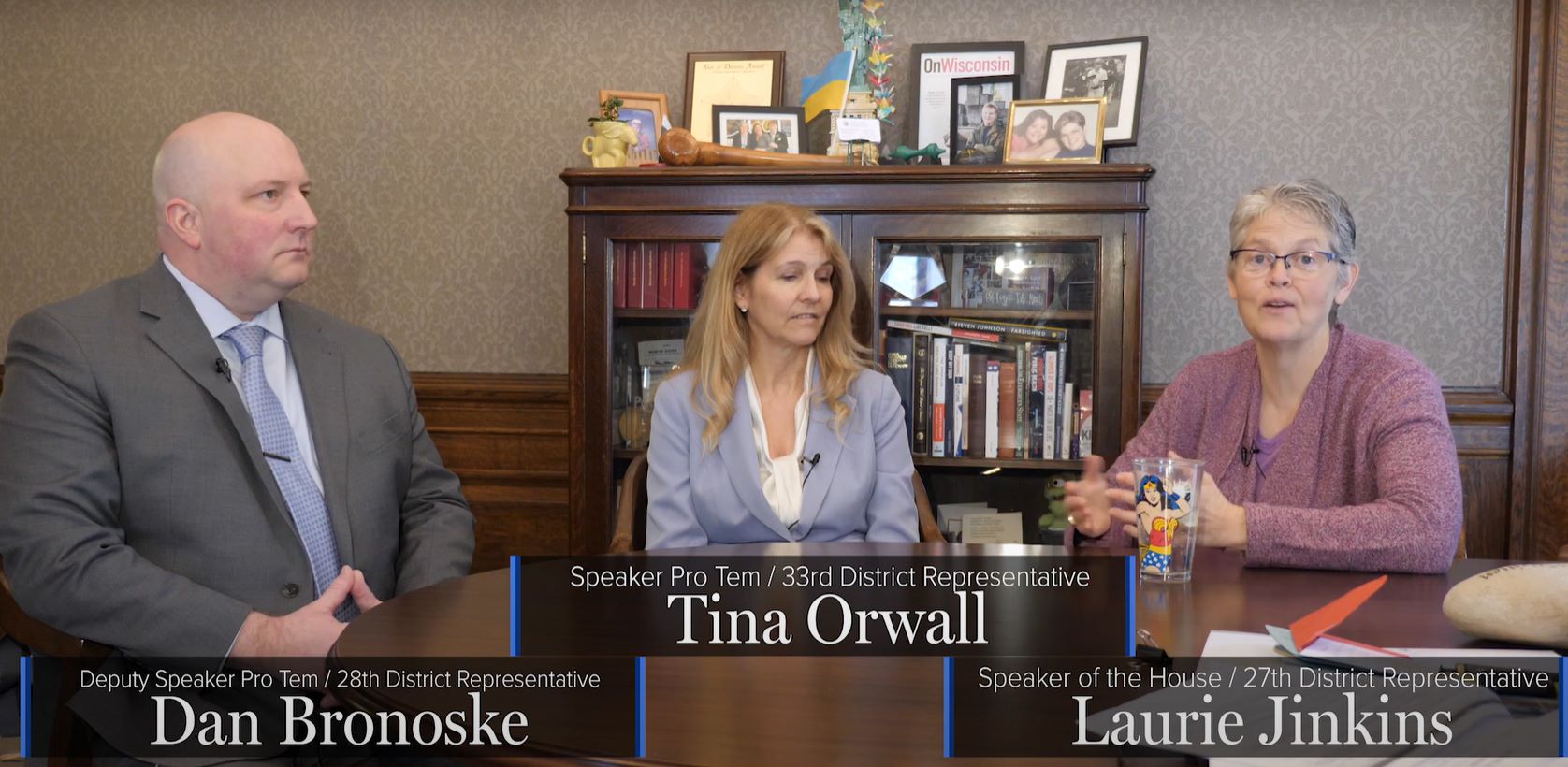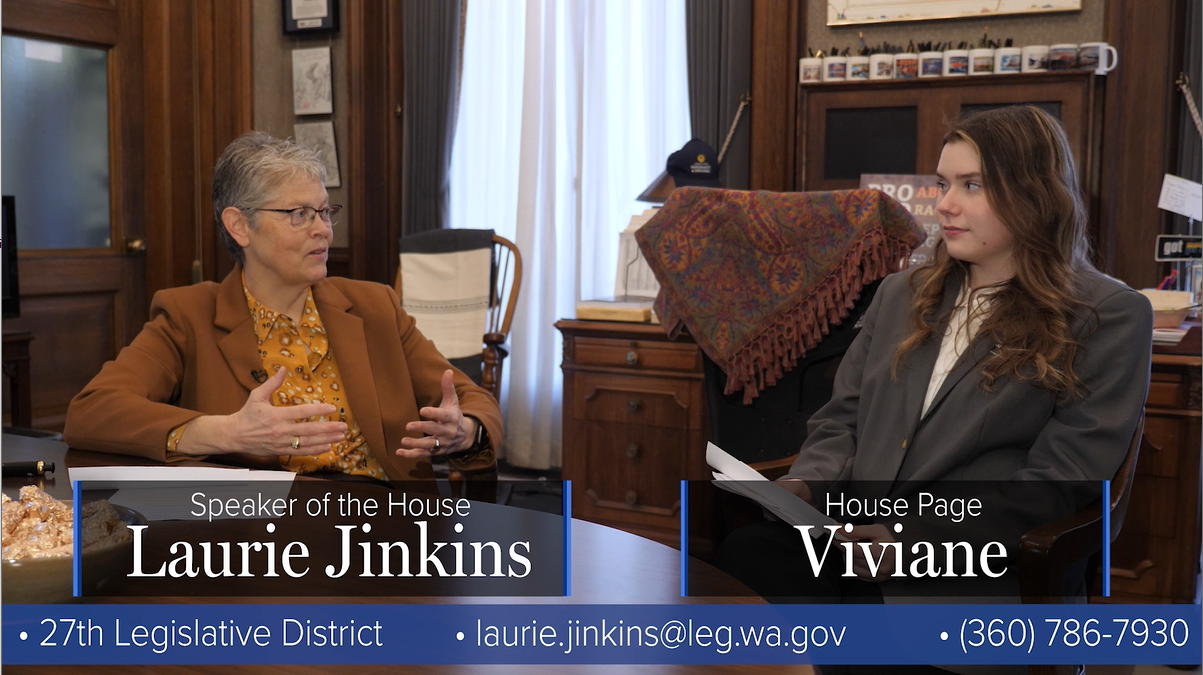—————————————————————————————————————————————————————————————————————
2023 Session Victories: Let’s talk housing, behavioral health, and community safety
Dear friends and neighbors,
In my last full e-newsletter I said it would take more than one email to cover all the work we did this session. Over the next couple months, I’ll be going issue-by-issue to provide updates on what we accomplished. We’re starting today with housing, behavioral health, and community safety.
I’ve heard from many of you on these topics, whether it’s concerns about housing affordability, questions about law enforcement recruitment, retention, and oversight, or how we can do more to help people in need.
I’m proud of what we were able to accomplish in all three of these areas, and excited to share these wins with you. Please let me know if there are other topics you would like me to cover.

Right now our statewide housing supply is short between 150,000 to 250,000 units. On top of that, we need to build one million homes in the next 20 years to meet our projected needs. This year we focused on building our housing supply, increasing housing stability, and ensuring there is support to help get and keep people housed.
This included big budget investments in our operating budget and capital construction budget. Our operating budget invests $519 million in housing, including:
- $141 million in continued funding for emergency housing and rental assistance
- $60 million in additional funds for encampment response and outreach
- $30 million to expand funding for children and youth homelessness
- $27 million in increased funding for Housing and Essential Needs
Our capital construction budget investments include:
- $400 million for the Housing Trust Fund, a competitive grant program to build affordable housing
- $170 million for affordable housing and shelters, including $14.5 million for youth shelter and housing projects and $50 million for transit-oriented development
- $124 million for home upgrades, including $35 million for weatherization in low-income households and $83 million for home energy efficiency rebates
We passed legislation to expand middle housing options in cities across our state, with a focus on expansion in areas near major transit stops. We need more of all kinds of housing, and this legislation helps make that possible. We also ensured that property owners who want to build an ADU will face less regulatory barriers.
We know that our real estate industry has a well-documented history of racism. This year we’re beginning to right that wrong with the Covenant Homeownership Act, which will provide down payment and closing cost assistance for people that have historically faced housing discrimination.
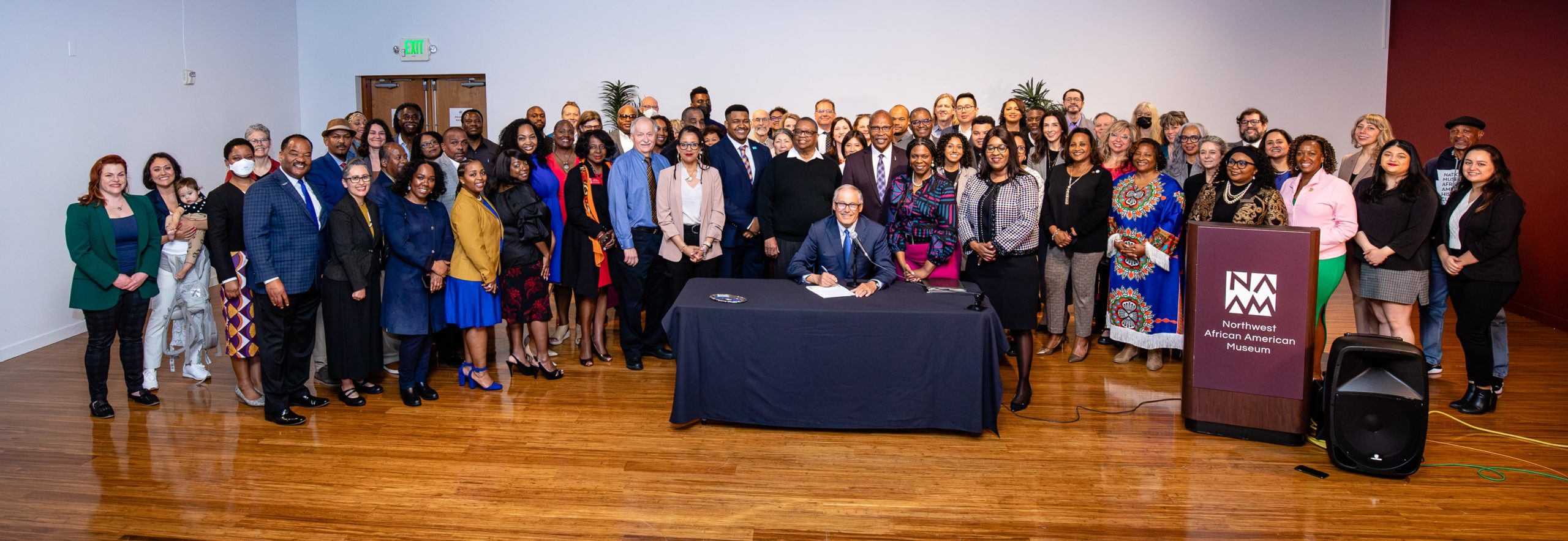
We’re also protecting renters from unfair deposit practices. A rental deposit should be just that, not a fee. When you’ve taken good care of a rental and leave only normal wear and tear, you should be able to get most of your deposit back.

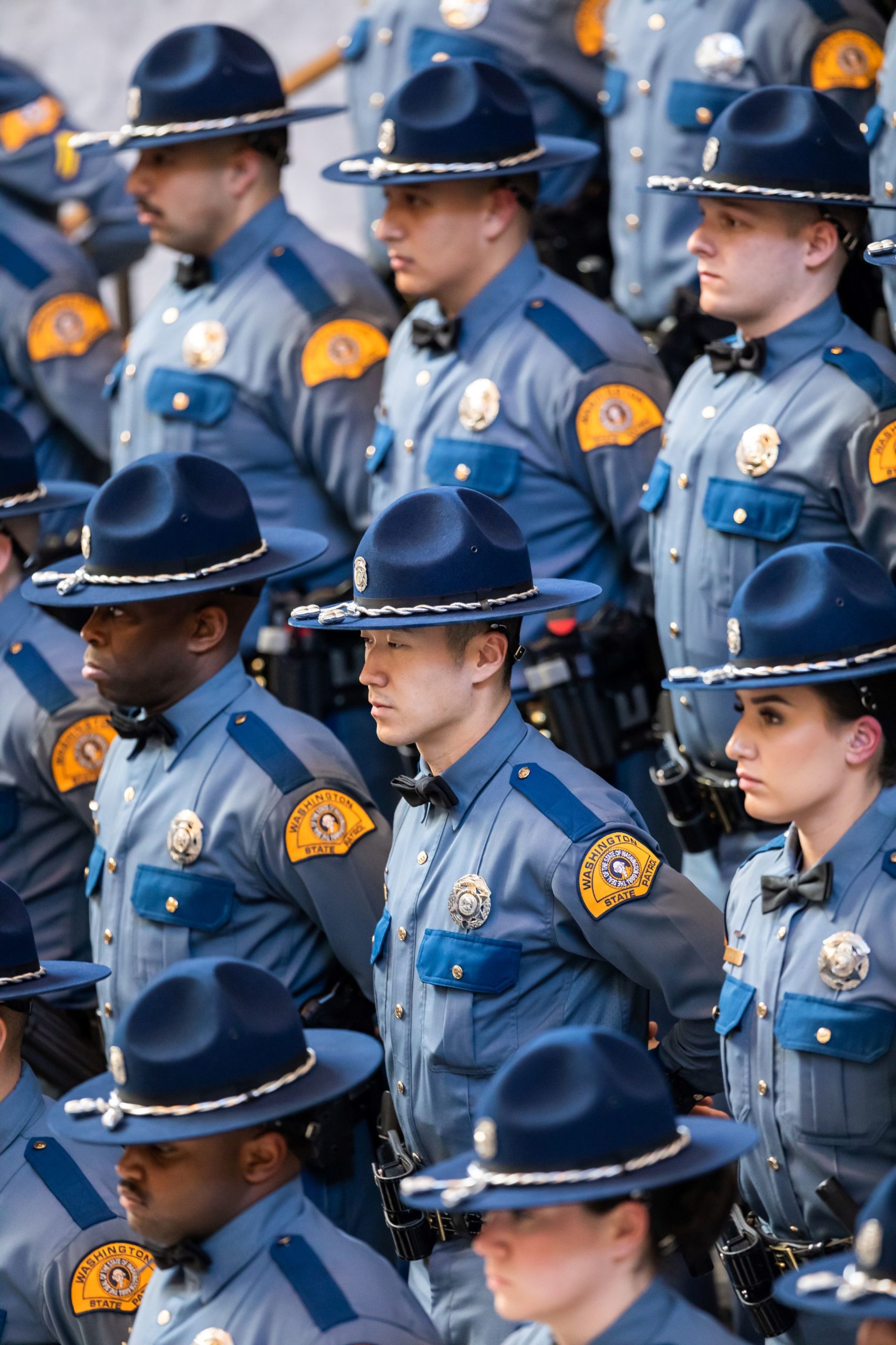
I’ve heard from many of you with different concerns about community safety. Concerns about gun violence prevention, about giving our law enforcement the tools they need to keep us safe, about what oversight there is for law enforcement officers that go too far, and what we’re doing to protect and support victims throughout our justice system.
Gun violence is preventable. During the 10-year period when the federal assault weapons ban was in effect, mass shooting fatalities were 70% less likely to occur. We heard on the House floor about some of the devastating losses people across the state have experienced in shootings where an assault weapon was used. That’s why this session we passed a ban on assault weapons.
We also passed legislation to require safety training and waiting periods to purchase firearms. Ensuring people know how to safely use, handle, and store firearms will save lives, as will a waiting period that gives people experiencing a crisis critical time to access help. Part of ending gun violence is also holding manufacturers and retailers accountable. We passed legislation requiring them to take reasonable steps to enforce existing laws, track their inventory, and prevent straw sales.
We also passed bills to support survivors of sexual assault by promoting victim-centered, trauma-informed responses in our legal system. Additionally, we improved protections for people experiencing domestic violence, ensuring the system works to keep them safe and that law enforcement and judicial officers have the training they need.
Private detention facilities in Washington should have to meet the same health and safety standards as public facilities, which is why we passed legislation to protect basic human rights for people in detention. We also know that family support and reentry services are critical to help people reentering society after detention, which is why we passed legislation to ensure that people who are incarcerated don’t have to pay to see their family. We also passed legislation to ensure that everyone reentering society has a plan and access to resources.
We also made adjustments to our vehicular pursuit law to ensure that police are able to pursue dangerous subjects, and to allow each community to set pursuit policies that work for them.
This legislation goes hand-in-hand with the investments we made in our operating budget. We allocated $253 million for public safety, legal aid, and corrections, including:
- $62 million to expand domestic violence services
- $52 million for the Office of Public Defense and the Office of Civil Legal Aid
- $27 million to expand criminal justice training and certification
- $12 million to expand firearm violence prevention grant funding
- $7 million to increase wages and gratuities for people who are incarcerated, currently people who are incarcerated only make up to $2.70 an hour

In my Sine Die newsletter at the end of April I mentioned that we were still working on a fix for the Blake decision in Washington state. I’m proud to say that in a quick, one-day special session last week we passed an agreement with strong bipartisan support.
Some background: In 2021, the Washington State Supreme Court found our law on drug possession unconstitutional. In response to that decision, we passed legislation building a new system focused on access to treatment and recovery but gave it a sunset so we could fine-tune the details as we saw the system in action. This compromise is a big deal, setting up systems for outreach, treatment, diversion, and recovery while still ensuring accountability. You can learn more about the bill here.
While Blake was one of our biggest priorities this year, we did lots of other work on behavioral health. We implemented a 988 behavioral health crisis response and suicide prevention system to ensure that people in crisis can connect with the resources they need. We also expanded access to certified peer specialists, people with lived experience that can help those in crisis.
We also acted on the youth mental health crisis, creating a new care coordinator to provide support for children living in hospitals for extended periods and their families. This coordinator will help provide individualized support and pull resources from multiple state agencies to help get kids into appropriate care as soon as possible.
Last year we leveraged federal funds to invest heavily in behavioral health in our operating budget; this year we built on those investments with:
- $271 million to increase rates for behavioral health providers
- $123 million for additional community bed capacity
- $115 million to expand opioid and other substance use disorder prevention and treatment
- $69 million to fund 988 crisis response and IT initiatives
- $55 million for crisis, outreach, and diversion programs
- $29 million to fund youth behavioral health
This Thursday: Join me for a telephone town hall!
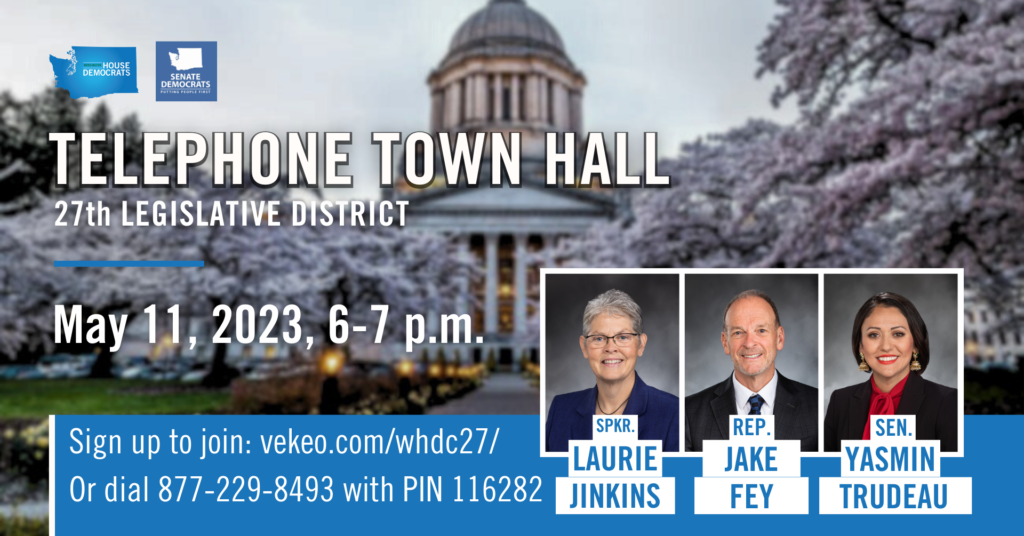
Dear friends and neighbors,
Just a reminder that Sen. Yasmin Trudeau, Rep. Jake Fey and I will be hosting a telephone town hall for 27th District constituents THIS Thursday, May 11th from 6-7 p.m.
Most district households with a landline should automatically receive a call around 6 p.m. inviting you to join. If you don’t have a landline, or you want to make sure you receive a call from us, you can sign up at the following link:
You can also join the conversation by calling 877-229-8493 and entering PIN # 116282 (note: this number will be active beginning about 5 minutes before the event start time).
We look forward to coming together as a community and taking your questions about the recently-concluded legislative session.
I hope you are able to join us.
Sincerely,

End of Session Update and a Telephone Town Hall
Dear friends and neighbors,
Earlier this week we wrapped up the 2023 legislative session. I’m proud of what we were able to accomplish in 105 days, and I’ve got a high-level overview below. We did a lot more than I can cover in just one newsletter, so I’ll be reaching out with more information in the coming days and weeks.
If you want a preview on some of that, we’re also hosting a telephone town hall on Thursday, May 11th at 6:00 PM, there’s more information about that below.
![]()
I’ve mentioned a couple of times this year how our work in Olympia is largely bipartisan, and this year was no exception. We passed 474 bills, 286 of those bills received unanimous support in their last vote on the floor. 379 of those 474 bills passed with over 80% of legislators in support. I’ve said it before: at the end of the day, we’re all here to work on behalf of the people of this state.
With that, here are some highlights:
Housing
Our Operating and Capital Construction Budgets together make over $1 billion in housing-related investments to address housing affordability and the homelessness crisis. That includes:
- $141 million for emergency housing and rental assistance
- $60 million for encampment response and outreach
- $30 million in additional funding for children and youth homelessness
These investments are a big deal and will go a long way towards helping keep people housed and get people into housing. But we know that alone isn’t enough, which is why we also passed bills to expand middle housing options (HB 1110), make it easier to build accessory dwelling units, or ADUs (HB 1337), and protect renters from unfair damage deposit claims (HB 1074).
Workforce
At the beginning of session, I talked about how every sector in Washington has been impacted by workforce challenges, from behavioral health to childcare, long-term care to K-12 education, public safety, and more. That’s why we’re investing $382 million in college and workforce development, helping to ensure we’re building the workforce of the future.
We know that it will take time for some of those investments to come to fruition, which is why we also passed a number of bills targeted at growing our workforce now. That includes bills to enter interstate compacts for dental hygienists, audiologists, mental health counselors, making it easier for people like military spouses to get to work in Washington state. We also passed legislation to address our homecare worker shortage (HB 1694), grow our behavioral health workforce (HB 1724), and remove barriers in hiring paraeducators (HB 1015).
Reproductive Rights
This session, we focused on what we can do in Washington to protect access to reproductive health and freedom and the right to make medical decisions without government interference. We invested $24 million in reproductive health services in our operating budget this year, in addition to passing legislation like:
- The My Health, My Data Act (HB 1155), which protects the right to reproductive care by blocking websites and apps from collecting and sharing sensitive health data.
- The Shield Law (HB 1469), which protects patients and providers of reproductive and gender-affirming care in Washington from retribution by other states, ensuring that care remains available to those who require it in Washington state.
- A bill to protect Washington’s health care providers (HB 1340), ensuring they cannot be disciplined for providing reproductive or gender-affirming care in accordance with Washington state law, regardless of where their patients reside.
- A bill ensuring that Washingtonians will have access to a safe abortion pill, Mifepristone, regardless of pending federal lawsuits. (SB 5678)
I know that many of you were also tracking our response to the Blake decision this year, and while we weren’t able to pass a bill this session our work is ongoing, and I’ll keep you updated.

|
|
Join us for a Telephone Town Hall!

Now that session is over, we’ll be hosting a telephone town hall to give an update and answer your questions. We’ll be calling households in the district at 6PM on Thursday, May 11.
There are a couple ways you can join:
- Sign up here by selecting the “Let’s Talk” button on the May 11 event
Or
- Dial in at 6PM on Thursday, May 11 by calling 877-229-8493, PIN #: 116282
I hope you’ll join us May 11th, and I look forward to answering your questions.
Session Update: bills so far, presiding over the House, and more
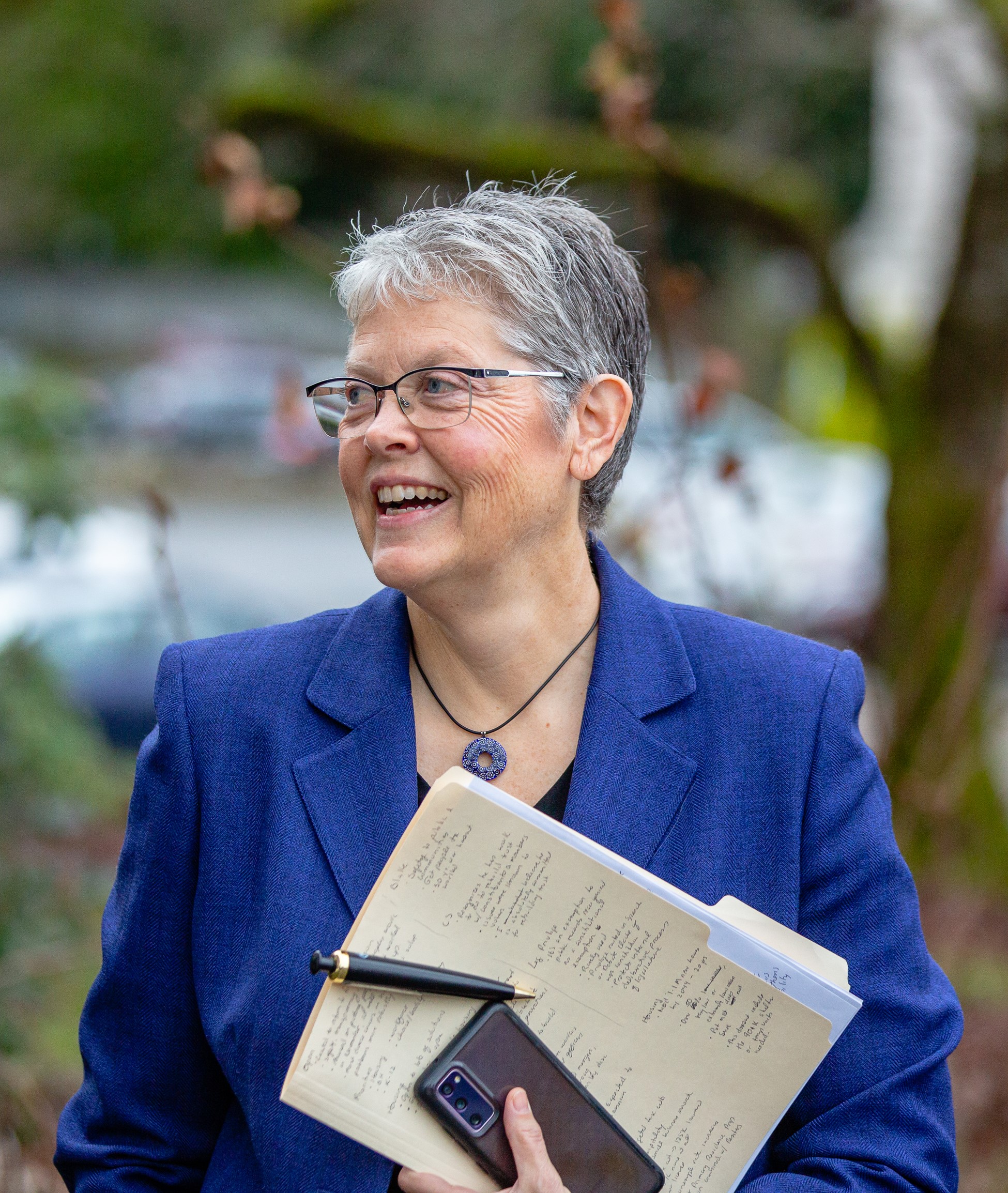 Dear friends and neighbors,
Dear friends and neighbors,
Today is the 96th day of this year’s 105-day legislative session, and I have some updates!
This week was the opposite chamber cutoff, which means we crossed the deadline for most bills to pass out of the opposite chamber (so the Senate for all our House bills). We’re also closing in on Sine Die, which is legislative jargon for the last day of session. We have until next Sunday, April 23rd, to wrap up our work.
I’m proud of what we’ve been able to do so far this session. I’ll talk about some of our most important bills later, but we’ve sent 161 bills to the Governor’s desk so far. I’m particularly proud that 115 of those bills had unanimous bipartisan support. We do a lot of important work down here, and most of it is incredibly bipartisan.
This next week is all about concurrences (looking at changes the Senate made to House bills and deciding whether we want to keep them or negotiate a different option) and finalizing our budgets for this biennium.

Legislative Update
We’ve done a lot of good work this session, and I wanted to highlight a couple particularly impactful bills.
This session we knew we needed to do more to protect reproductive rights and gender-affirming care in Washington state. We’ve done that in a couple ways – ensuring that providers can’t be punished for doing their job, protecting patients in Washington state from other states trying to impose their beliefs on us, and protecting your sensitive health care data.
We also took strong action on gun violence prevention, passing bills to ban assault weapons, hold gun manufacturers accountable, and require a 10-day waiting period and safety training to purchase a firearm.
Another important bill that stands out for me is SB 5729, which caps insulin costs at $35 a month. I’ve been diabetic since I was 12 years old, and I understand just how critical it is for insulin to be affordable. It’s the oldest prescription drug still available yet there are no generics, and costs can be extraordinarily high. This bill will help save lives.
What’s it like presiding over the House?
Last week I sat down with Rep. Tina Orwall and Rep. Dan Bronoske to talk about what it’s like to preside over the House. They both serve in leadership positions and help me run debate on the floor. If you’re curious about what that means you can learn more here.
Getting Involved in Government
I also wanted to pass along an opportunity to get more involved in your state government. The governor is in charge of appointing people to over 230 different boards and commissions, from the local community college board of trustees to the lottery commission to Puget sound restoration. These boards and commissions include identity-based groups and cover almost any interest area you can think of. You can learn more about what’s available and how to apply here.
House rolls out “Resilient Washington Budget”

Dear friends and neighbors,
Yesterday, House Democrats rolled out our 2023-2025 state operating budget proposal, the Resilient Washington Budget.
Over the last few years we’ve set a new standard for investing in families across our state, with a focus on those disproportionally impacted by the pandemic or who have historically faced barriers to opportunities.
We’ve leveraged federal funds to expand food assistance, cash assistance, and housing programs to keep people housed and fed. We’ve increased access to childcare and post-secondary education to help address workforce development and retention. We’ve set ourselves up for a more equitable future.
In this budget we’re continuing that work, being strategic with our spending so we can maintain critical programs even as federal funding goes away. We know that people across our state are feeling the economic impacts of inflation, and many are still feeling the impacts of COVID-19. That’s why we focused on resilience. It’s not just about weathering tough times, it’s about knowing that we have your back.
This proposal makes significant investments in K-12 education, housing, workforce development, poverty reduction, and much more. It does all this with a focus on racial equity, something you’ll see woven throughout the Resilient Washington Budget. I’ve got some details about the budget below, but if you want to read more about the Resilient Washington Budget you can do that here, or head to fiscal.wa.gov for details.

 K-12 Education: Education, particularly special education, is a top priority this year. With $1.9 billion in new funding, we are investing in students, educators, and schools. Our budget proposal:
K-12 Education: Education, particularly special education, is a top priority this year. With $1.9 billion in new funding, we are investing in students, educators, and schools. Our budget proposal:
- Provides funding for inflation adjustment and health care cost increase for educators – $570 million
- Increases funding for supports for special education students- $179 million
- Expands funding for access to free meals for students- $85 million
- Increases funding for dual language grants – $10 million
Homelessness and Housing: House Democrats believe that we must invest more in housing and homelessness. From working to right the wrongs of the past by providing assistance for first time homebuyers who hold identities that have historically experienced housing discrimination, to increasing funding for housing and homelessness assistance, we are moving forward on supportive housing and homeownership. Our budget proposal:
- Continues funding for emergency housing and rental assistance – $175 million
- Funds the covenant home ownership program which helps communities that have historically experienced housing discrimination buy a home – $150 million
- Allocates additional funds for encampment response and outreach – $60 million
- Increases funding for Housing and Essential Needs – $27 million
- Expands funding for children and youth homelessness – $28 million
Public Health and Health Care: We saw in the pandemic how undocumented immigrants were disproportionately impacted by lack of health care access. Up to one-third of our uninsured residents are undocumented adults. House Democrats are expanding health care access and Cascade Care subsidies to those individuals and families so they can get appropriate medical care. We also must stabilize our health care delivery system including hospitals, family practice, and pediatric providers. And because Democrats believe we must protect the right to abortion and gender-affirming care, we’re adding funding for providers to meet the demand caused by the US Supreme Court’s Dobbs ruling. Our budget proposal:
- Provides funding for health equity for undocumented adults – $99 million
- Increases rates for health care workers including primary care and pediatricians – $68 million
- Funds Cascade Care for individuals with lower incomes who are not Medicaid eligible – $25 million
- Maintains our commitment to public health with $362 million in new funding
- Provides funding for reproductive health services – $17 million
 College and Workforce Investments: House Democrats are ensuring everyone has the support they need to get a degree or credential, whether you’re an individual with low-income, the first in your family to go to college, or a parent returning to school. Investing in the people of our state helps everyone thrive and grows our workforce for the future. In addition to expanding higher education support with $795 million in compensation, our budget proposal:
College and Workforce Investments: House Democrats are ensuring everyone has the support they need to get a degree or credential, whether you’re an individual with low-income, the first in your family to go to college, or a parent returning to school. Investing in the people of our state helps everyone thrive and grows our workforce for the future. In addition to expanding higher education support with $795 million in compensation, our budget proposal:
- Increases workforce development and opportunity at Community and Technical Colleges – $67 million
- Funds health care workforce and training – $45 million
- Provides funding to expand Washington College Grant – $20 million
- Funds student basic needs to make sure students have the support they need to get a degree or credential – $9 million
- Increases funding for high demand enrollments – $7 million
Join me this Saturday for a Town Hall
Dear Friends and Neighbors,
This is just a quick reminder about our town hall this Saturday, March 18th from 10AM-12PM. Come ask questions and get an update on our work this session. We’ll be on the Tacoma campus of the Evergreen State College (1210 6th Ave Tacoma, WA 98504).
You can submit question in advance online: https://www.surveymonkey.com/r/27thLDtownhall2023
Or by email: OfficeofSpeakerJinkins@leg.wa.gov
Hope to see you there!
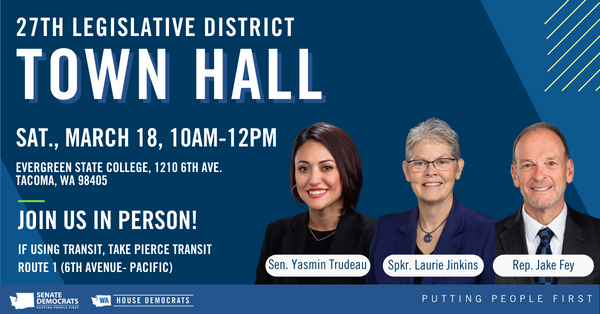

Session Update: Floor Action, an Upcoming Town Hall, the Page Program, & more
Dear friends and neighbors,
This week was the House of Origin Cutoff in Olympia, which means we’ve crossed the deadline for most bills to pass out of the House (or Senate, for Senate bills) and move over to the other chamber. It’s been a remarkably productive session so far – we’ve passed 328 bills off the House floor, with nearly 200 receiving unanimous support and over 250 receiving strong bipartisan support.
We’ve had a strong focus on housing, workforce development, and reproductive health. I think that’s reflected in the bills we’ve passed so far. Some highlights include:
- Expanding our state’s middle housing supply by allowing more diverse housing options in residential neighborhoods. (HB 1110)
- Making it easier to build Accessory Dwelling Units (HB 1337)
- Shielding patients who seek reproductive or gender-affirming care in Washington state, and their health care providers, from other state’s archaic laws (HB 1469)
- Ensuring that health care providers in Washington state are protected when providing reproductive or gender-affirming care (HB 1340)
- Protecting your sensitive health data, including data related to reproductive health (HB 1155)
- Addressing our home care workforce shortages by updating certification requirements and reducing licensing fees for home care workers (HB 1694)
- Growing our behavioral health workforce by supporting those studying to enter the field, reducing barriers to entering the workforce, and streamlining licensing requirements (HB 1724)
Now we’re pivoting back to committee hearings to look at the bills sent over from the Senate, and I’ll keep you posted on that work.

Join us for a Town Hall
I’ll be joining my seatmates for a town hall next Saturday, March 18th at 10AM. Come ask questions and get an update on our work so far. We’ll be on the Tacoma campus of the Evergreen State College (1210 6th Ave Tacoma, WA 98504).
You can even submit question in advance online: https://www.surveymonkey.com/r/27thLDtownhall2023
Or by email: OfficeofSpeakerJinkins@leg.wa.gov
House Page Program
Now that we’re back in-person we’ve restarted our House Page Program! This is an opportunity for students from 14-17 years old to come to Olympia for a week and learn more about how our state legislature works. If you want to learn more about the program check out this interview I did with Viviane, who paged in the Houselast week!
WAVE Scholarship for Career and Technical Education
I also wanted to share a scholarship opportunity for high school graduates who are enrolled in a career and technical education program. This program helps support current students and grow our workforce, and I’m excited about the opportunity. You can learn more about the scholarship or apply here, the deadline to apply is March 17th.
The People’s Work

Dear friends and neighbors,
Hello from Olympia, where we’ve started the 2023 Legislative Session! For the first time since 2020, we’re gathering to do the people’s work in-person — a welcome change after two years of remote session.
As we start this year, I want to thank you all again for the confidence you’ve placed in me as your representative. I promise to honor that confidence with listening, hard work, and good policy. I’m also grateful to my colleagues in the House for again trusting me to serve as Speaker of the House. I gave remarks after I was sworn in Monday in which I talked about what House Democrats will be focusing on this session. You can watch those here.
Looking ahead – I’m proud of how well Washington has weathered the last two years, but I know we still have work to do.
Housing
I know that there are families struggling to find accessible and affordable housing across our community and across the state. We need to build 1.1 million homes within the next couple decades to meet our current and future housing needs. Almost half of these homes will need to be accessible for low-income Washingtonians. This session I’ll be working with my colleagues to find creative, innovative, and bipartisan solutions to help build a stronger future for our state.
Workforce
I also know that every sector in Washington has been impacted by workforce challenges, from behavioral health to childcare, long-term care to K-12 education, public safety, and more. We’re looking at how we can grow each of these workforces, making it easier for people to get the education, training, or certification they need to provide quality services.

Last week I was on a bipartisan panel with other legislative leaders to talk about our priorities for the coming session. We may not agree on everything, but there’s a lot of common ground. In my opening remarks to the House I talked about being patient with each other and impatient about the problems we’re facing, I’m hopeful that with this approach our work together will produce better results for all Washingtonians.
This is the People’s House and I’m proud to work hard here on your behalf.

Staying Engaged this Session

Our transition to remote work over the last two sessions made the legislature more accessible than ever for our constituents. While we’re back in-person, we’re keeping those remote options for you to get involved. More information on those options is below:
- Learn — Curious about how the legislative process works? You can watch a start-to-finish overview by clicking here. If you prefer text instead, click here.
- Watch — TVW.org broadcasts all legislative debates, votes, committee hearings and other events in the House and Senate. There’s also an extensive archive of past events if you can’t watch it live. Check out TVW’s “Legislative Review” for a quick recap of everything that’s happened each day of session.
- Research — Find detailed information about legislation by lawmaker or topic by clicking here.
- Testify — Share your thoughts on legislation! This session, you’ll be able to testify in person, remotely or in writing based on what’s easiest for you. Click here for more information on how to testify.
2022 Session Victories: Bringing down costs for Washingtonians

Dear friends and neighbors,
Rising costs due to inflation are impacting all of us right now, especially working families, people on fixed incomes, and those who were already struggling to make ends meet.
While the state Legislature cannot singlehandedly solve the global inflation problem, we took action this session to help bring down costs for individuals, families, and small businesses in our state. This e-newsletter highlights many of the steps we took that will impact folks here in the 27th Legislative District and beyond.
Bringing down health care costs
Protecting you from surprise medical bills: House Bill 1688 gives patients and families peace of mind that they won’t get hit with a surprise bill after an emergency room visit. It aligns state and federal balanced billing policies, and ensures that mental health emergencies are protected from surprise bills just like other emergencies.
Lowering and capping out-of-pocket costs for insulin: Senate Bill 5546 caps the cost of insulin at $35 per month for all health plans, down from the $100 per month cap the Legislature set in 2020. Given how many Washingtonians depend on this lifesaving drug, lawmakers will continue working on ways to bring down its cost for household budgets.
Expanding access to hospital charity care for all who need it: House Bill 1616 standardizes eligibility requirements for hospital charity care across the state. It also expands access, so that no matter where you live, you can access free or reduced-cost care if you need it. This change impacts 2.2 million Washingtonians.
Allowing doula care to be reimbursed by Medicaid: House Bill 1881 creates a voluntary program for doulas who want to serve Medicaid patients. 52% of all births in Washington state are covered by Medicaid, but until now doula care was not covered, leaving families to cover the full cost out of pocket. Why is access to doula care for all important? Because doulas – or birthing assistants – help their clients navigate labor, delivery, and postpartum recovery, which leads to stronger birth outcomes and a reduction in medical interventions. Less medical interventions means lower costs overall. Additionally, in many cultures doulas have long been the primary form of support for those giving birth, making access to doulas a matter of equity.
Bringing down higher ed costs
Lowering borrowing costs for Washington students: House Bill 1736 creates a state student loan program with a low interest rate of just one percent. This is much lower than current federal student loans or private loan rates. While the state can’t cancel student loan debt, we can provide better options for students and their families so they don’t have to take on crushing debt just to get a degree or certificate.
Ensuring more families get connected with financial aid programs: House Bill 1835 increases outreach to Washington students and families so they complete the FAFSA, or Free Application for Federal Student Aid. This form is the key to accessing so many scholarships, grants and loans, but each year Washington students simply leave this money on the table because our state ranks 49th out of 50th for FAFSA completion. This outreach will help make sure that students who need help affording college or technical school can access the aid they need to get there.
Expanding the Washington College Grant and providing bridge grants: In 2019, the Legislature passed a bill creating the Washington College Grant, a major investment in our students and workforce. This grant provides free or reduced tuition at Washington’s two-year, four-year and technical colleges for families earning up to 100 percent of the state’s Median Family Income. This year, we expanded the program and funded bridge grants for the students with highest need (a $34 million investment in the supplemental budget). These grants can be used by students to pay for expenses beyond tuition, including transportation, books, and even child care.
Bringing down costs for small businesses
B&O small business tax credits: Many small businesses have not returned to their normal level of operations since the start of the pandemic. Senate Bill 5980 increases the credit that small businesses are allowed to deduct for state business and occupation taxes and increases the filing threshold, meaning 125,000 Washington small businesses will see lower B&O taxes or not even have to file at all.
Help for the hard-hit hospitality sector: While many businesses struggled due to the pandemic, those in the hospitality sector were particularly impacted by pandemic-related closures. Our supplemental state budget invests $100 million in support for these businesses, so they can keep their doors open. We also cut liquor license fees in half to help our restaurants, bars, tasting rooms and distilleries as they continue recovering.
Reduced unemployment insurance premiums: Senate Bill 5873 reduces the impact of the pandemic on
unemployment insurance premiums for businesses, keeping the cap at last year’s rate and lowering it for 2023. This will particularly help our restaurants and other small businesses that often did the right thing by keeping workers on payroll even during pandemic restrictions.
Bringing down costs for basic needs
Utility assistance: Our supplemental state budget invests $160 million in increased assistance for basic utilities (water, energy, garbage, recycling and broadband), so that the households struggling the most in our state can keep the lights on, keep the water running, and access basic services.
Food assistance: We invested an additional $94 million to help Washington families be able to put food on the table with increased food assistance. No child – or adult – should go to bed hungry at night.
Rent and housing assistance: Our two-year state operating budget invests big (over $1 billion) in rent assistance to help keep people housed even if they’re currently struggling financially. We increased available funding for rent assistance by another $68 million in this year’s supplemental budget. Keeping people from ending up homeless is a big priority, and that’s why we also passed the Apple Health and Homes Program, which provides a housing benefit and community support services to those struggling with chronic physical or behavioral health conditions.
More affordable housing: It’s no secret that we have a housing shortage in our state, and many people are struggling to find affordable housing. While the state has more work to do to address the housing shortage, we took a big step this session with a $500 million transfer of funds from the state’s general fund to the capital construction budget. With this funding, we can build more affordable housing, to start making a dent in the backlog and help more people find a place to call home.
Abortion rights: We won’t back down
Last week, a leaked draft opinion from the US Supreme Court seemed to indicate the Court is poised to overturn Roe v. Wade. I immediately released the following statement:
“Washington state has a long history of supporting abortion rights, reinforced by the voters time and again over many years. House Democrats, along with Senate Democrats and the Governor, have assured we maintain a safety net of abortion providers and enhanced protections for the right to choose in Washington, unlike some other states that are rolling back this fundamental right. The draft Supreme Court memo appears to confirm the Court is preparing to overturn Roe v. Wade, which will not only immediately endanger women’s health but more ominously indicates a willingness of this Court to undo many more of its own precedents. Here in Washington, we will not allow these rights and protections to be taken away. In the Legislature, Democrats in both chambers have stood strong against repeated attempts by Republicans to undermine abortion rights in our state. In the 2022 session, bills to limit or prohibit abortion were introduced in both chambers by Republican legislators, but they did not go anywhere because the Democratic majority stood strong against these attacks on basic rights. My caucus will continue to not only hold this line, but find ways to protect women from other states whose rights may be stripped away if Roe is overturned.”
I was proud to join other Democratic lawmakers from the House and Senate, as well as Governor Inslee, at a rally in Seattle to say unequivocally that we won’t back down here in Washington state when it comes to abortion rights. You can watch my remarks at the rally here:
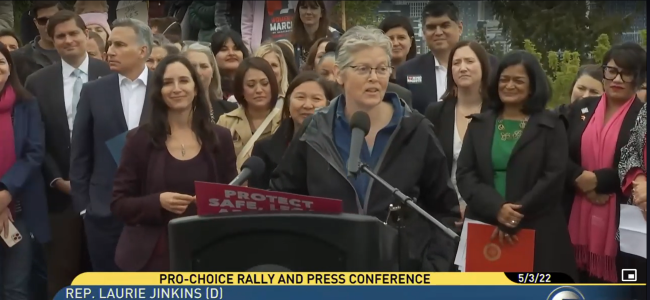
While other states are passing abortion bans and laws criminalizing abortion, often with no exceptions for rape, incest, or even ectopic pregnancies (which can be fatal), we passed House Bill 1851 this year. It expands abortion access by making clear that providers like nurse practitioners – who already have the training and experience to provide abortion care – can do so under state law. It also prohibits the state from penalizing a pregnant individual or a medical provider for an authorized abortion.
Opportunities to serve on gubernatorial boards & commissions
Did you know the governor appoints appoints citizen/community members to serve on the many state boards and commissions? It’s a way to bring more voices to the table, and ensure that the diverse array of talents, skills and experiences from all our state’s communities are represented.
The membership of the Legislature is more diverse than ever. Our boards and commissions should also reflect the diversity of this great state. The Governor’s Office is currently seeking prospective candidates to fill current and upcoming vacancies. If you are interested, you can read about the many opportunities available by clicking here. If you are ready to apply, click here.
This is my last e-newsletter until after the 2022 general election is certified. During an election year, there are certain restrictions on legislative communications to prevent the use of state resources for campaign purposes. These restrictions kick in on May 16, the first day of candidate filing week. My legislative Facebook page will also be “frozen” during this time, although all content will still be available for viewing.
Please note that I can continue to respond to constituent emails and inquiries, so don’t hesitate to reach out with any questions, comments, or concerns.
It’s an honor to serve the 27th Legislative District.
Sincerely,

Statement from Speaker Laurie Jinkins on abortion rights in Washington state
Speaker of the House Laurie Jinkins (D-Tacoma), released the following statement today in response to the draft US Supreme Court opinion suggesting the Court may be poised to overturn Roe v. Wade:
“Washington state has a long history of supporting abortion rights, reinforced by the voters time and again over many years. House Democrats, along with Senate Democrats and the Governor, have assured we maintain a safety net of abortion providers and enhanced protections for the right to choose in Washington, unlike some other states that are rolling back this fundamental right. The draft Supreme Court memo appears to confirm the Court is preparing to overturn Roe v. Wade, which will not only immediately endanger women’s health but more ominously indicates a willingness of this Court to undo many more of its own precedents. Here in Washington, we will not allow these rights and protections to be taken away. In the Legislature, Democrats in both chambers have stood strong against repeated attempts by Republicans to undermine abortion rights in our state. In the 2022 session, bills to limit or prohibit abortion were introduced in both chambers by Republican legislators, but they did not go anywhere because the Democratic majority stood strong against these attacks on basic rights. My caucus will continue to not only hold this line, but find ways to protect women from other states whose rights may be stripped away if Roe is overturned.”

